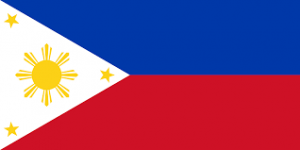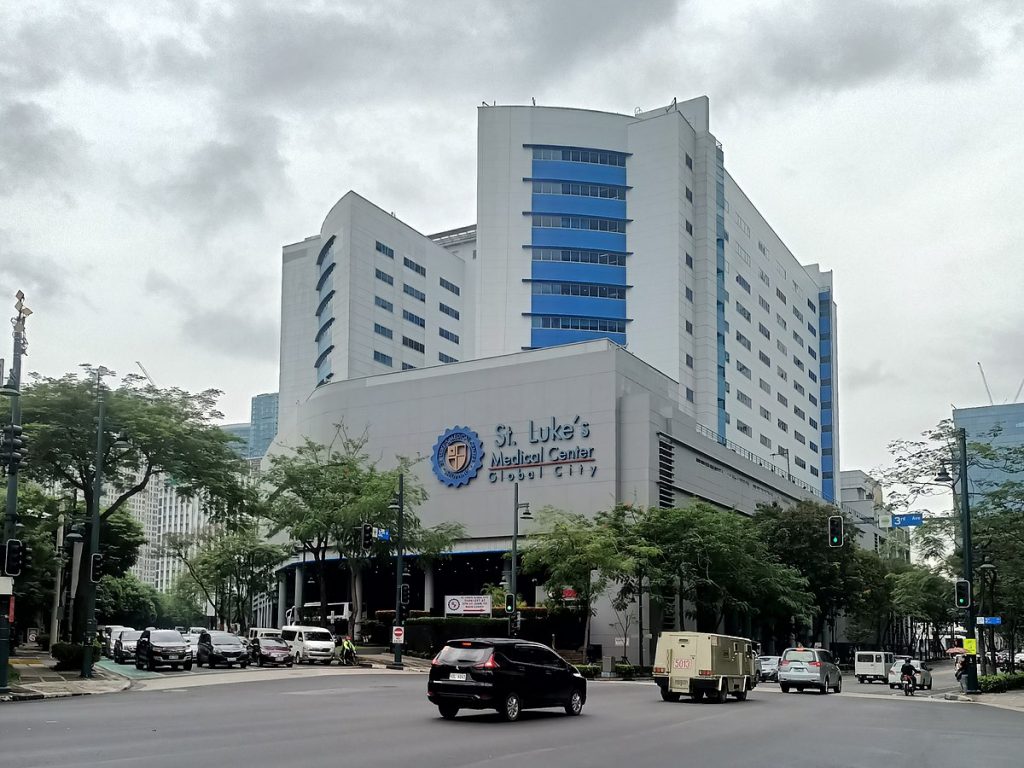Philippines
Insurance for Expats in the Philippines
 Overview
Overview
The Philippines has a rich history combining Asian, European, and American influences. Prior to Spanish colonization, the Filipinos had a rich culture and were trading with the Chinese and the Japanese.
The Philippines, an archipelago in Southeast Asia, is known for its stunning beaches, vibrant culture, and friendly locals. The country has become a popular destination for expatriates and retirees due to its affordable cost of living, warm climate, and English-speaking population. The healthcare system in the Philippines is a mix of public and private providers, with significant variations in the quality and availability of medical services across different regions.
Today the Philippines holds strong political ties with the USA and is rapidly becoming a major hub for technology in South East Asia and a popular destination for both working and retiring groups of expats.
Health Insurance in Philippines
International health insurance is essential for any expat. In addition to expat healthcare insurance rates, insurance providers and online insurance comparisons we can show you comprehensive plans which will be required for an expat living or moving to the Philippines.
However, remember that cheap insurance may not represent the best value for money. If you need to make a claim as an expat, you will require specialist expatriate insurance cover abroad. When relocating to Philippines, expat health insurance is an important item to research. The healthcare system in the Philippines is in transition as the country modernizes and grows. Here’s some information to help you better understand health insurance.
There are more than 1,600 hospitals, most of which are privately-run and accept health insurance, Philippines health care can be hit or miss. You will see a vast difference between the quality and skills of centers in the cities and the rural areas. Lack of funding has made rural facilities outdated and lacking by Western standards. In the cities, though, there are hospitals that can boast the same standards as their Western neighbours.
Private health care services are considered to be costly by locals, but are relatively inexpensive by most expat standards. The relative affordability of private healthcare can be seen in the increasing popularity of the Philippines as a medical tourism destination.
In Manila, most expatriates head to St. Luke’s Hospital, which has a 24-hour emergency center and practices top treatments and accepts most international health insurance in Philippines. Note that most hospitals will require a down payment at check-in, then give you the remainder of your bill upon checkout which you can then submit to your expat health insurance.
Philippines illnesses, especially those most prevalent in expatriates, often require confinement for days to weeks, which can quickly increase a hospital bill. Be sure you have the proper vaccinations before arriving.
| Plan Type | Affordability | Coverage Limits | Network of Providers | Customer Support | Global Coverage |
|---|---|---|---|---|---|
| Local Focus | High | Low | High | Medium | Low |
| International | Low | High | High | High | High |
Healthcare System in Philippines
The healthcare system in the Philippines comprises public and private sectors, with the public system largely managed by the Philippine Health Insurance Corporation (PhilHealth).
PhilHealth provides universal health coverage to all Filipino citizens and residents, including expatriates with valid visas. All expatriates who are legal residents in the Philippines must enroll in the Philippine Health Insurance Corporation (PhilHealth) program. PhilHealth categorizes its members based on their employment status, income level, and age. The main categories include:
- Formal Sector: Employees working in both the public and private sectors.
- Indigents: Low-income individuals whose premiums are subsidized by the national government.
- Sponsored Members: Individuals whose premiums are covered by local government units.
- Lifetime Members: Retirees and pensioners who have paid into the system for at least 120 months.
- Senior Citizens: Those aged 60 and above who do not qualify as lifetime members.
- Informal Economy: This includes self-employed individuals, migrant workers, overseas Filipino workers, and expatriates legally residing in the country.
While public healthcare offers basic medical services at lower costs, it often suffers from overcrowding, limited resources, and variability in service quality, particularly in rural areas. In contrast, private healthcare facilities, primarily located in major cities like Manila, Cebu, and Davao, offer more comprehensive and specialized services but at a higher cost.
Private Health Insurance in Philippines is a more suitable option for expats seeking higher quality care.
The private health sector in the Philippines serves approximately 30% of the population and operates on a model similar to North American healthcare systems. Private health insurance is available to supplement the coverage provided by public health insurance, offering additional benefits such as access to private hospitals, shorter wait times, and more advanced medical equipment.
There are two primary options for purchasing private health insurance:
International Insurance Companies: These policies can be purchased online or over the phone, providing coverage not only in the Philippines but also in other countries. This is particularly beneficial for expatriates who travel frequently or may require medical treatment outside the Philippines.
Local Insurance Companies: Policies from local providers are typically purchased after arriving in the Philippines and generally cover medical services within the country. These plans are suitable for those who do not require international coverage.
Additionally, the Philippines offers another form of healthcare coverage known as Health Maintenance Organizations (HMOs). HMOs are a network of private healthcare providers offering services to employees as part of their employment benefits, often supplementing PhilHealth coverage. Members of an HMO have access to healthcare services within the network in exchange for a regular fee, which can be paid monthly or annually.
International health insurance plans from companies like Cigna and Allianz are recommended for those who may require treatment abroad or seek broader coverage, including medical evacuation. These plans often come with access to top private hospitals such as St. Luke’s Medical Center and Makati Medical Center, which are known for their advanced facilities and specialized medical staff.
Best Hospitals in Philippines
The Philippines boasts several top-tier hospitals that cater to both locals and expatriates, providing high-quality medical services. Some of the best hospitals include:
1. St. Luke’s Medical Center: Located in Manila, St. Luke’s is renowned for its state-of-the-art facilities and a wide range of medical specialties. It is a popular choice among expats for its international standards of care.
- Address: 279 E Rodriguez Sr. Ave, Quezon City, Metro Manila, Philippines
- Phone: +63 2 8723 0101
- Email: [email protected]
2. Makati Medical Center: Another leading hospital in Manila, Makati Medical Center offers comprehensive healthcare services, including specialized treatments and emergency care. This hospital is renowned for its cutting-edge technology and excellent patient care. It offers a wide array of specialized services, including advanced diagnostic imaging, comprehensive cancer treatment, and specialized surgical procedures. Its location in the financial district makes it accessible to both local and expatriate communities.
- Address: 2 Amorsolo Street, Legazpi Village, Makati City, Metro Manila, Philippines
- Phone: +63 2 8888 8999
- Email: [email protected]
3. Asian Hospital and Medical Center: Asian Hospital is recognized for its patient-centered care and modern facilities. It specializes in various fields including cardiology, oncology, and orthopedic surgery. The hospital’s serene environment and high-standard patient services make it a preferred choice for those seeking a comfortable healthcare experience.
- Address: 2205 Civic Drive, Filinvest City, Alabang, Muntinlupa, 1780 Metro Manila, Philippines
- Phone: +63 2 8771 9000
- Email: [email protected]
4. Cebu Doctors’ University Hospital: Located in Cebu, this hospital is a leading healthcare provider in the Visayas region. It offers specialized services such as neurosurgery, cardiology, and urology. The hospital is known for its medical excellence and has been a key institution for medical education and training in the region.
- Address: Osmeña Blvd, Cebu City, Cebu, Philippines
- Phone: +63 32 255 5555
- Email: [email protected]

Best Healthcare Providers in Philippines
For expatriates living in the Philippines, selecting the right international health insurance is crucial for ensuring access to quality healthcare both within the country and abroad. Here are some of the best international health insurance companies for expats in the Philippines:
Cigna: Cigna offers comprehensive global health insurance plans with extensive coverage, including inpatient and outpatient care, medical evacuation, and wellness benefits. They are known for their flexible plan options and a wide network of healthcare providers worldwide.
AXA: AXA is a leading global insurer offering plans that cover a wide range of medical needs, including preventative care, hospitalization, and specialist consultations. Their plans are known for being highly customizable to suit the needs of expatriates.
IMG: International Medical Group (IMG) offers a variety of plans for individuals and families, including coverage for emergency care, routine check-ups, and more. IMG is popular for its affordability and flexibility, making it a good choice for budget-conscious expats.
Allianz: Allianz provides comprehensive international health insurance with a focus on high-quality care and extensive global networks. Their plans often include optional add-ons like dental and optical care, making them a versatile choice for expats.
Travel Insurance Philippines
Travel insurance single trip in the Philippines should be taken out due to the health risks in the country and also due to the high crime rate which unfirtunatley is rife in some urbanized areas in the Philippines. If you are looking for single trip travel Insurance in The Philippines we can help you search a large choice of travel insurance, short term medical insurance, Single Trip Travel Insurance in The Philippines and more.
Travel insurance is an important coverage for travelers, expats and newcomers. The most common types of cover for travel insurance in the Philippines includes:
- Medical Cover
- Accident Cover
- Adventure sports, like scuba diving
- Flight cancelations
Theft of personal belongings
Remember to purchase travel insurance when travelling in the Philippines. Read the fine print for any policy to know what’s covered, what isn’t and what to do in the event of an emergency.
Life insurance Philippines
The move abroad for your new venture is exciting, whether it be for work or pleasure. There is much to consider and life insurance should be a high priority on that list. Life insurance can save your family from confusing and expensive experiences people are often faced with living in a foreign country when someone dies. i-Brokers can assist you through the whole process of selecting the right cover for you no matter where in the world you are and what your requirements are.
Many life insurance policies are considered as domestic and thus will only cover you in one country. These policies are very good and often very cost effective as they provide insurance for one particular location or region. International life insurance works differently. These policies will cover you no matter where in the world you travel so will guarantee to payout if you was to pass away and you are no longer living in your original country of residence. From expatriates living abroad these type of policies are able to give you the protection you want even if you was to repatriate or move on to another destination at a later date.
Studies have shown that the average expat will live in more than one country once they have left their home country. It is with this in mind that the need for an expat to have a policy that will cover them globally is essential.









